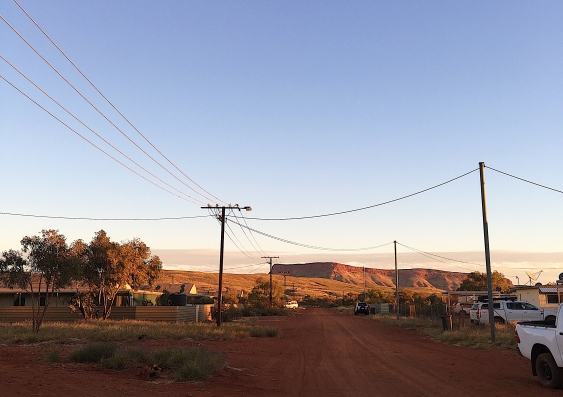Rapid COVID-19 testing available for Aboriginal and Torres Strait Islander Australians
Rapid testing for COVID-19 will deliver results on the spot for thousands of Aboriginal and Torres Strait Islander Australians.
Rapid testing for COVID-19 will deliver results on the spot for thousands of Aboriginal and Torres Strait Islander Australians.

Lucienne Bamford
The Kirby Institute UNSW Australia
+61 (0) 432 894 029
lbamford@kirby.unsw.edu.au
The Australian government has today announced a new program that will deliver COVID-19 test results within 45 minutes to remote Aboriginal and Torres Strait Islander communities that have previously had to wait days for a test result.
The program is being managed on behalf of the Australian government by the Kirby Institute at UNSW Sydney, and the International Centre for Point of Care Testing at Flinders University.
The program will utilise existing point-of-care testing technology which has already been used by the Kirby Institute/Flinders University partnership with widespread success in remote communities to rapidly test and deliver results for sexually transmissible infections (STIs).
As a critical part of this program, the existing network of Aboriginal health services with extensive experience in offering point-of-care testing for STIs in rural and remote communities, will be expanded to other sites servicing Aboriginal and Torres Strait Islander people in Australia.
Professor Rebecca Guy, who leads the Kirby Institute’s contribution to the program says that “for many rural and remote areas, the nearest laboratory currently able to conduct this test is located hundreds of kilometres away, even a plane trip in some cases. The COVID-19 point-of-care technology will bring the laboratory to the community.”
The COVID-19 point-of-care test is as accurate as standard lab tests, and the only approved test for use by primary care services.
“This program will provide front line clinicians in remote communities with the tools to quickly test possible cases and their contacts. A negative result will minimise unnecessary isolation or evacuation, whereas a positive will lead to quick action to isolate and provide clinical care for the patient and to follow up with their contacts” Professor Guy said.
University of Queensland Professor James Ward, a member of the National Aboriginal and Torres Strait Islander COVID-19 Advisory Group, has had a long involvement in the point-of-care testing program for STIs. He says that accessible and equitable access to COVID-19 testing is critical.
“Aboriginal and Torres Strait Islander peoples are vulnerable to this new pandemic. This is due to high rates of chronic disease, severe overcrowding and because almost 40% of our people live in remote and or outer regional areas in Australia where there are significant delays associated with getting test results to and from laboratories. These are a very welcome addition to fighting COVID-19,” Professor Ward said.
“We saw in the 2009 H1N1 influenza pandemic that hospitalisation and ICU admission rates were ten- and five-fold higher, respectively, in the Aboriginal population of the Northern Territory compared with the non-Indigenous population.”
“Access to testing in communities will be an essential component of the public health response to this pandemic in Australia. This is one part of a range of critical strategies to reduce transmission in our communities,” Professor Ward said.
Online training, support and quality management for clinicians will be delivered through Flinders University’s International Centre for Point-of-Care Testing.
Professor Mark Shephard, the Centre’s Director, said: “We acknowledge the Australian government’s support for this program in this crisis and look forward to working closely with Aboriginal Community Controlled Health Services and government-funded services to enable the new tests to be rolled out quickly.
“Our previous work with Kirby has shown that, with sound training and quality practices in place, point-of-care testing can be conducted safely and to a high standard by health professionals in remote primary care settings. This important program will provide equity of access for COVID-19 testing for Aboriginal and Torres Strait Islander peoples living in remote communities.”